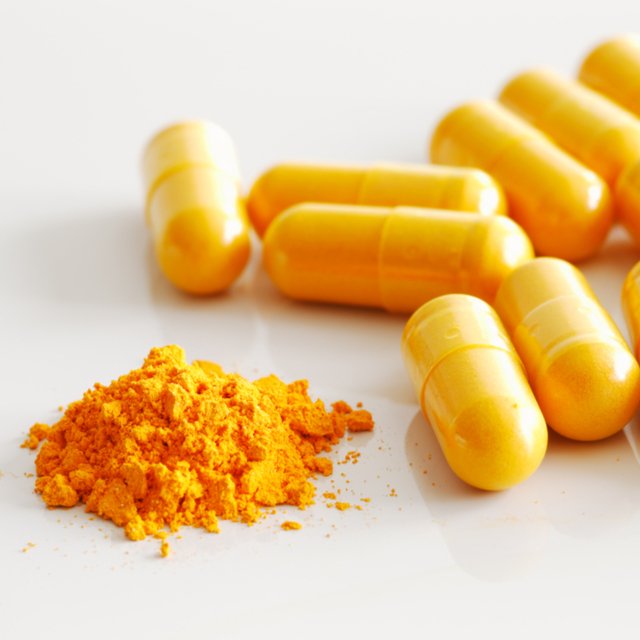The Health Benefits of Berberine
When it comes to herbal support for better health and wellness, few nutritional supplements can compare with the many health benefits of berberine supplements.
You may have heard about berberine recently, as this herb is certainly the subject of a growing body of research, but just because something is popular doesn’t always mean it can live up to the hype. However, more and more studies are confirming the powerful health benefits that berberine offers.
Still, you may be wondering, what is berberine? What are the benefits of berberine? How should I take berberine?
To answer these questions and more, we’ve prepared this helpful guide so you can better understand what berberine is and all the ways it may be able to support your heart and digestive health while also promoting your weight management and cognitive support goals.
What is Berberine?
Before we get into all the health benefits of berberine, let’s take a moment to better understand what berberine is. Berberine is a plant chemical that can be found in species such as tree turmeric, Oregon grape and European barberry, to name a few.
When this yellow-colored bioactive compound is removed from one of those shrubs (loosely referred to as belonging to the berberis family), berberine has many uses, from serving as a natural dye to offering a range of health benefits.1
First used by herbalists in ancient China, berberine has been around for a long time, but what exactly are the benefits of taking berberine?
What Are the Benefits of Berberine?
Berberine offers many health benefits to a variety of organs and systems throughout the body. This is potentially due to the way berberine interacts with enzymes and even certain genes.13
For example, berberine has been shown to activate a powerful enzyme sometimes called the “metabolic master switch” which is found in the cells of the brain, heart and other major organs.1 By activating this enzyme, berberine is able to promote better and more efficient metabolism.
But the benefits don’t end there. In fact, berberine has been studied for its health benefits in a number of bodily functions from weight management to heart health. Berberine may even benefit gut health and more.
Let’s consider the benefits of berberine for specific applications:
Berberine for Weight Loss
Berberine has been studied for its positive effects on weight management for individuals with certain health conditions.14 It is thought that this supplement may contribute to healthy weight management due to its influence on hormones like insulin and the overall formation of fat cells in the body.2
Berberine has also been shown in research studies to help block a protein used to form new fat cells in the body,7 further aiding the management of a healthy weight in adults. Studies are still ongoing, but the weight supporting action of berberine has been well documented and has shown to help with overall BMI and waist circumference in some findings as well.15,16
Of course, taking berberine alone isn’t enough to maintain a healthy weight, but when used in conjunction with a sensible diet and healthy exercise routine, the results may surprise you.
Berberine for Heart Health
Berberine may also offer real and long-lasting benefits for your heart health. For example, taking berberine has been shown to support blood pressure readings already within the normal range, in addition to supporting a healthy blood glucose response.2
There is increasing research indicating that the heart health benefits of berberine may be more extensive than originally expected, having healthful impacts on a variety of cardiovascular markers.3
This is particularly true in the case of supporting blood lipid levels already within the normal range,4 since maintaining healthy cholesterol is a critical element to overall heart health as part of a healthy aging process.5
Berberine’s heart health benefits may also be linked to its influence on gut health.
Berberine for Gut Health
Studies have shown that berberine can improve gut health by promoting certain healthy bacteria in the gastrointestinal tract. This is important, as the types of microflorae positively impacted by berberine can have additional healthy influences on markers of heart health.6
Intestinal integrity has also been shown to benefit from berberine as its use is linked to promoting a more diverse microflora and helping balance the species of bacteria found within the gut.6
Along with aiding in the production of bile and bilirubin, which are used by the body to break down fats and aid in the metabolism of fat-soluble vitamins,8 berberine has also been traditionally used to help the body to detox itself by promoting its natural system for cleansing.8
Berberine for Other Benefits
Related to its effects on gut health, berberine has also been shown in studies to benefit liver health. This occurs as berberine may help block harmful elements within the liver and may also provide long-term support for the liver and its function.6
Berberine may offer additional benefits to your overall wellness by providing support for brain health. In fact, some studies have shown that berberine can have a healthy impact on the dopaminergic system of the brain.9 This system is involved in the release of certain neurotransmitters in the brain which affect cognitive health and elements of mood such as motivation and a sense of reward.10
How Should I Take Berberine?
As with any health supplement, it’s always best to talk with a healthcare professional before adding to your established health routine. That said, there are some general guidelines you can follow when taking berberine. The standard dosage is anywhere from 900 to 2,000 mg a day over the course of three to four doses to make up for its short half-life. To take advantage of berberine’s ability to mitigate spikes in lipids and blood sugar, take this supplement either before or shortly after a meal.
Does Berberine Have Any Side Effects?
Berberine has been associated with reports of some gastrointestinal side effects but is generally considered safe for adults to take for up to six months.11,12
What Can Berberine Do for You?
Berberine has been used for thousands of years by people from all over the world to help support health and improve a wide variety of concerns. How can berberine benefit your health? In more ways than you may have previously thought.
Consider supplementing your healthy diet with Swanson berberine supplements.
You be well, now
Swanson
This article has been medically reviewed and accepted.

About Dr. Brian Wu, MD
Dr. Wu is a general, adult psychiatrist who has a special interest in helping people become unstuck from symptoms that may block living in full alignment with their values or aspirations. He graduated magna cum laude from the University of Maryland with a Bachelor of Science in Physiology and Neurobiology. He then attended the M.D./Ph.D. Program at the Keck School of Medicine of USC, earning his Ph.D. in Integrative Biology and Disease in 2015 and his M.D. in 2017. He completed his residency training in the psychiatry program at the LAC+USC Medical Center. As a Provost’s Post-Doctoral Scholar, he obtained a Master of Science in Narrative Medicine (M.N.M.) at Keck School of Medicine of USC during his last year of residency. He has written over 100 articles and has been published in the LA Times, Wolters-Kluwers, and Heathline.
*These statements have not been evaluated by the Food and Drug Administration. These products are not intended to diagnose, treat, cure, or prevent any disease.
Sources
1. Berberine Activates AMP-Activated Protein Kinase With Beneficial Metabolic Effects. American Diabetes Association. Read source
2. Berberine improves pressure overload-induced cardiac hypertrophy and dysfunction through enhanced autophagy. ScienceDirect. Read source
3. Study Progress of Berberine. PubMed. Read source
4. Berberine and Heart Health. Chiropractic Economics. Read source
5. Cholesterol Guidelines and Heart Health. Cleveland Clinic. Read source
6. Effects of Berberine on the Gastrointestinal Microbiota. National Library of Medicine. Read source
7. Berberine. National Library of Medicine. Read source
8. 6 Potential Benefits of Berberine. American Association of Naturopathic Physicians. Read source
9. Oral Berberine. Signal Transduction and Targeted Therapy. Read source
10. Dopaminergic Pathways. The American Journal of Pathology. Read source
11. Efficacy and Safety of Berberine Alone for Several Metabolic Disorders: A Systematic Review and Meta-Analysis of Randomized Clinical Trials. PubMed. Read source
12. Efficacy of Berberine in Patients with Type 2 Diabetes. National Institute of Health. Read source
13. Berberine: A Review of its Pharmacokinetics Properties and Therapeutic Potentials in Diverse Vascular Diseases. National Center for Biotechnology Information. Read source
14. Berberine is an insulin secretagogue targeting the KCNH6 potassium channel. National Center for Biotechnology Information. Read source
15. Berberine, a Herbal Metabolite in the Metabolic Syndrome: The Risk Factors, Course, and Consequences of the Disease. National Center for Biotechnology Information. Read source
16. The effect of berberine supplementation on obesity parameters, inflammation and liver function enzymes: A systematic review and meta-analysis of randomized controlled trials. National Center for Biotechnology Information. Read source




